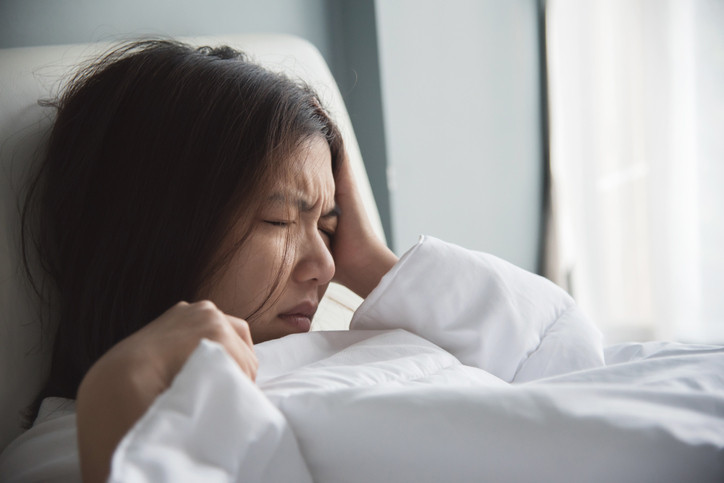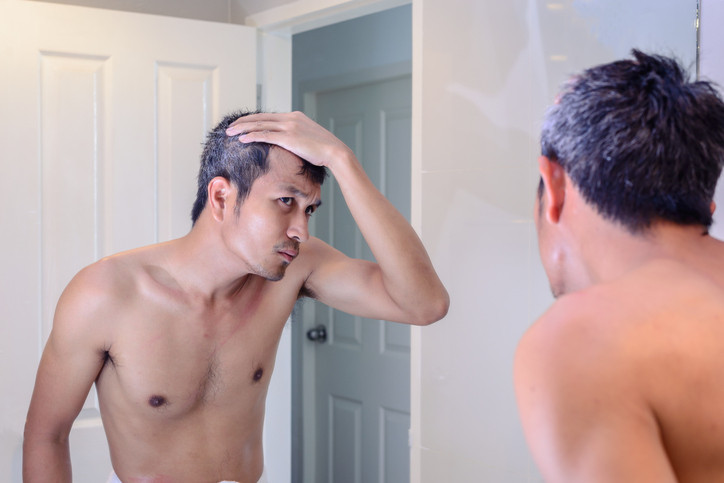
Wildfires: How to cope when smoke affects air quality and health

What can magnesium do for you and how much do you need?

Dry socket: Preventing and treating a painful condition that can occur after tooth extraction

What happens during sleep �� and how to improve it

How is metastatic prostate cancer detected and treated in men over 70?

Could biofeedback help your migraines?

What is autism spectrum disorder?

Plantar warts: Options for treating this common foot condition

Cancer survivorship: What comes next after treatment

Nutritional yeast: Does this savory, vegan seasoning pack a nutritional punch?
Men's Health Archive
Articles
COVID-19: If you’re older and have chronic health problems, read this
Older people who have a chronic medical condition are at increased risk for severe disease and death if they contract COVID-19. Just how old is “older,” what constitutes chronic disease, and how can you lower risks?
The heart of a healthy sex life
A regular sex life offers many heart health benefits. But can you stay sexually active with heart issues?
Regular sex is good medicine for your heart. But what if you've had a heart attack or a heart procedure? When is it safe to resume sex again �� and should you?
"Most men can continue their sex life after a heart attack, unless there are additional circumstances that increase their risk," says Dr. Jason Matos, a cardiologist with Harvard-affiliated Beth Israel Deaconess Medical Center. "It depends on the person and his specific issue, but most men don't have to give up their sex life because of their heart health."
Exercise can reduce the side effects of prostate cancer treatments
In the journals
Men who choose androgen deprivation therapy (ADT) for their advanced prostate cancer can avoid possible side effects with short-term exercise, suggests a study published in January 2020 in BJU International.
Common side effects of ADT include weight gain, loss of muscle mass, lower cardio fitness, fatigue, and a drop in quality of life. These often occur within three months after treatment begins. In the study, researchers recruited 50 men with prostate cancer who began ADT. Half did two supervised exercise sessions per week for three months. The hourlong workouts included both aerobic and resistance exercises. The group then continued the workouts on their own for another three months.
OK, boomer: You’re not the only one who needs testing for hepatitis C
Recent guidelines for screening for hepatitis C focused on baby boomers because that population had most of the undiagnosed infections, but because new infections are increasing fastest in those 20 to 39, the guidelines have been revised.
Have a headache? The top 7 triggers
There are several common triggers for headaches. Identifying the one that is causing your headache is the first step toward avoiding it or ensuring you can treat it properly.
�첩���� Ad Watch: What’s being cleansed in a detox cleanse?
The idea of a detox diet or cleanse seems like it might be beneficial, and the advertising is certainly compelling, but these products are not regulated in any way. Evidence of beneficial effects from using them is limited, and there are reports of side effects and complications.
Can telehealth help flatten the curve of COVID-19?
Virtual health care is a convenience in ordinary times, but a valuable tool during a crisis like the one we are experiencing. Also called telehealth, telemedicine, or digital care, it allows medical staff to evaluate patients to determine possible treatment needs and whether they can remain at home.
How to not practice emotional distancing during social distancing
While COVID-19 brings normal life to a temporary halt as we practice social distancing, it helps to double-down on deepening social bonds and practicing kindness and gratitude, not emotional distancing.
Why the human heart thrives with exercise
A study comparing the hearts of apes with four different groups of men demonstrates how the heart adapts over a person’s lifetime depending on what exercise a person does (or doesn’t do). The most revealing part of the findings pertained to men who are generally not active.
Can stress really make hair (or fur?) turn gray?
Does stress really turn hair gray? Scientists conducted experiments that simulated stress and led to gray hair—in mice, which does not mean it’s true for humans, regardless of what you may have heard in the media.

Wildfires: How to cope when smoke affects air quality and health

What can magnesium do for you and how much do you need?

Dry socket: Preventing and treating a painful condition that can occur after tooth extraction

What happens during sleep �� and how to improve it

How is metastatic prostate cancer detected and treated in men over 70?

Could biofeedback help your migraines?

What is autism spectrum disorder?

Plantar warts: Options for treating this common foot condition

Cancer survivorship: What comes next after treatment

Nutritional yeast: Does this savory, vegan seasoning pack a nutritional punch?
Free Healthbeat Signup
Get the latest in health news delivered to your inbox!
Sign Up











